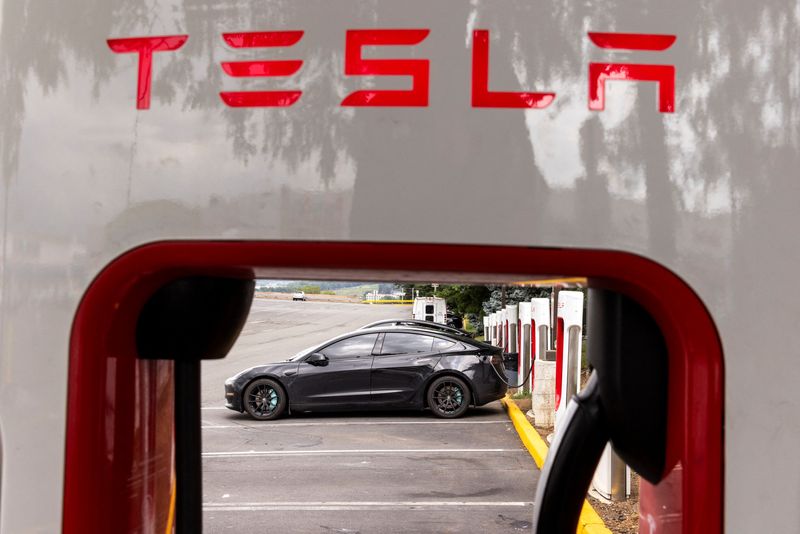(Reuters) - Electric vehicles and plug-in hybrids are seeing concerns over their reliability easing but they still lag gas-powered vehicles, a survey by an influential U.S. non-profit organization showed on Thursday.
EVs now have 42% more problems than their gas-powered counterparts, down from last year's 79%, according to the Consumer Reports (CR) annual auto reliability survey.
Plug-in hybrids have 70% more problems than internal combustion models, improving from the 146% more problems it had last year. Internal combustion engine (ICE) vehicles and hybrids remain the most reliable vehicle types overall.
On a brand reliability scale, which consider the weighted overall problem rate, Tesla (NASDAQ:TSLA) came in at 17th place while Rivian (NASDAQ:RIVN) ranked last at 22nd.
Tesla owners reported some build quality issues, including body hardware, paint and trim, noises and leaks, and problems with electrical accessories, the report said.
The survey ranked legacy automaker Ford (NYSE:F) at the 13th position, adding that its least reliable model is the F-150 Hybrid.
Japanese automakers Subaru (OTC:FUJHY) and Lexus - Toyota (NYSE:TM)'s luxury brand - topped the reliability chart.

"While brand rankings can guide you to the showroom, it is critical to look at reliability for specific models before making a purchase decision," said Jake Fisher, senior director of Consumer Reports' Auto Test Center.
The Consumer Reports survey covers 20 problem areas including engine, electric motors, transmission and in-car electronics. The organization gathered data on more than 330,000 vehicles from the 2000 to 2024 model years, with a few newly introduced 2025 models.